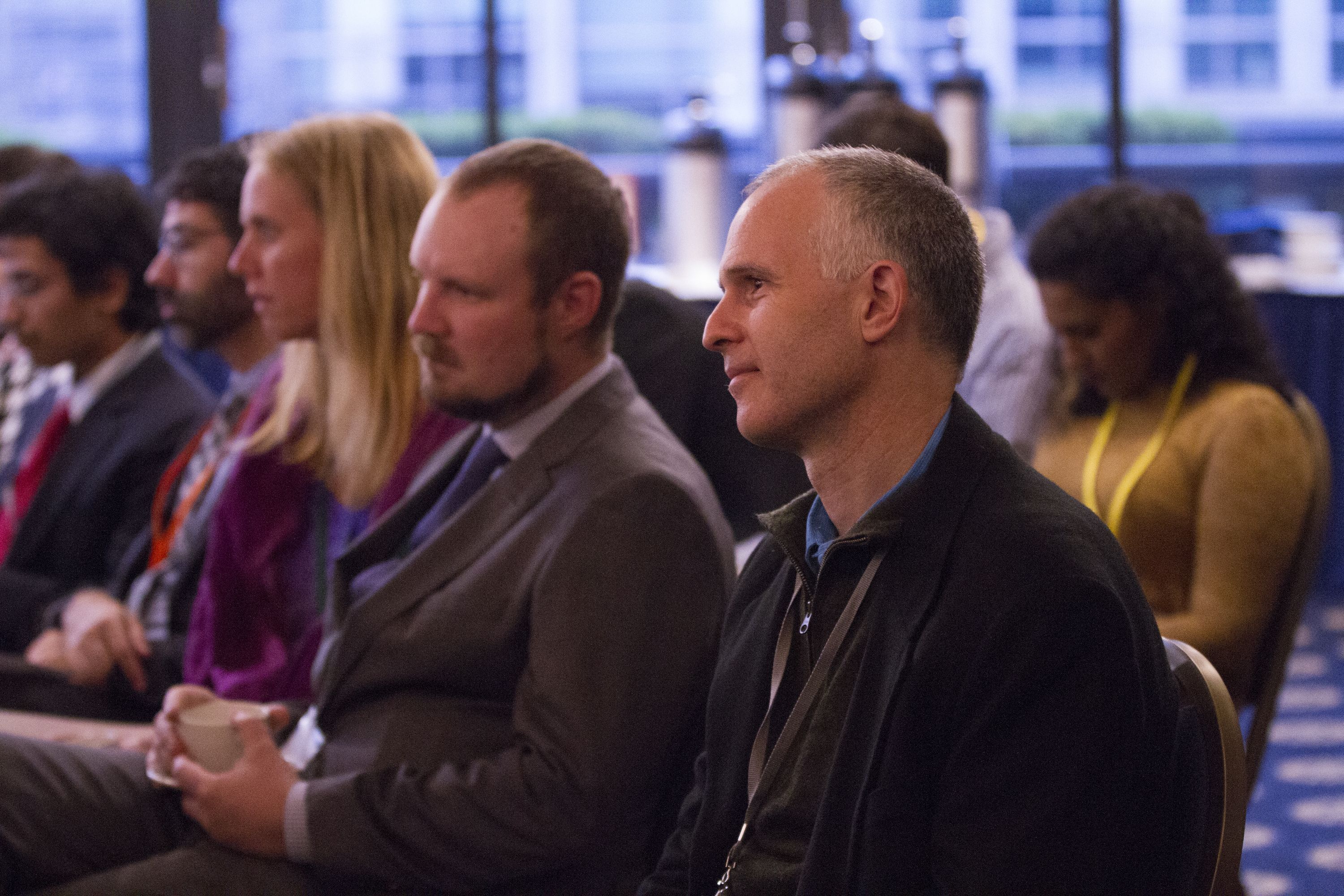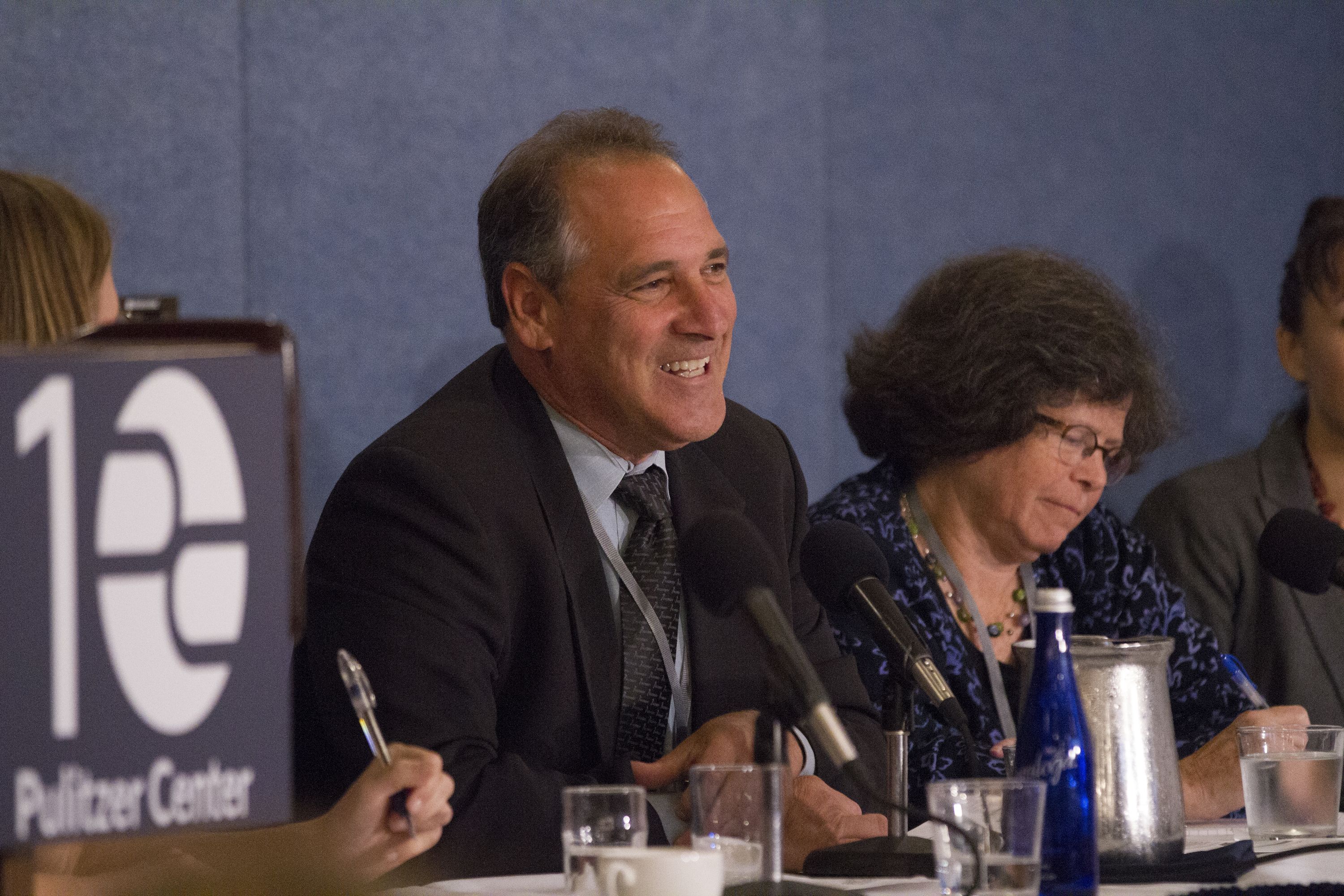Funding for global health reporting can be limited, access difficult, and the time allotted to gather sources and information is ever-waning, especially in today’s world of journalism. Some of the Pulitzer Center’s top Global Health Reporting grantees participated in the October 8 panel, including Jon Cohen, Joanne Silberner, Allison Shelley, and Roger Thurow.
“This was something that was bigger than science,” Cohen said, referring to his work on HIV/AIDS in countries around the world. “This project really made me feel like we told the whole story. And because of the Pulitzer Center’s funding, I didn’t feel like anything was compromised, either. There was no other agenda other than to do the journalism, and to do it with independence.”
Silberner discussed the cultural stigma behind certain diseases, like diabetes and cancer in her reporting on global health issues
“The Pulitzer Center allowed me to go where the silence is,” Silberner said.
Shelley spoke similarly of “hard sells” like her photography projects on maternal healthcare and its impact on culture and society.
“This is not a sexy subject, but the Pulitzer Center came along and filled that void.”
Shelley spoke of her time in Nigeria reporting on the illegal and extremely stigmatized practice of abortion, which leads to a high rate of botched procedures and deaths in women there.
“The best part was bringing that reporting back to the U.S. and connecting it directly to audiences. The Pulitzer Center plugged me into schools and we talked to students from second grade on up to college,” Shelley said.
Thurow contributed some telling mantras for anyone pursuing global health reporting. Every number is a person, he said. “We’re here to outrage and inspire”.
Summing up his decades of experience reporting on hunger around the world, Thurow said “Readers come to care about the characters in our reporting. As they come to care about the characters, they come to care about the issues.”







